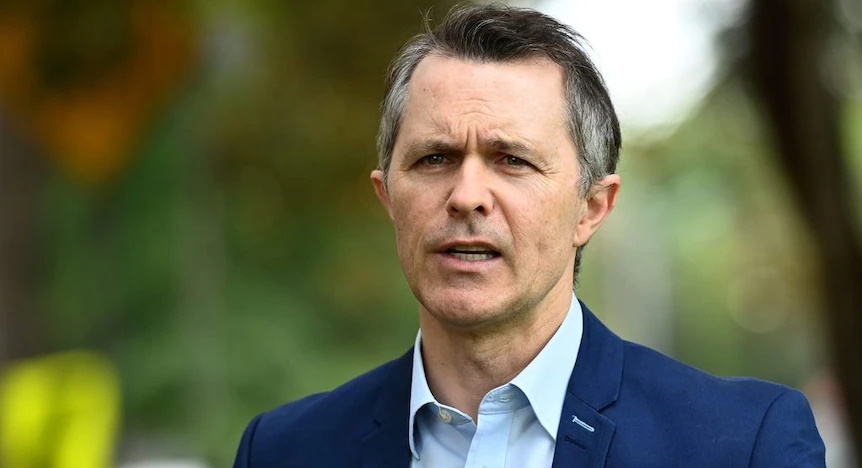Jason Clare promises 'reset' of government's relations with universities
- Written by Michelle Grattan, Professorial Fellow, University of Canberra

Federal Education Minister Jason Clare has committed to a “reset” of relations between government and universities, and promised more effort to boost the proportion of students from disadvantaged backgrounds, in a major speech on higher education.
He is also speeding up visa processing to help rebuild Australia’s education export industry, and wants Labor’s September jobs summit to discuss how to retain foreign students after they complete their degrees, to enlarge Australia’s skilled workforce.
In his address, titled Reset, Rebuild and Reform, to a Universities Australia dinner in Canberra on Wednesday night, Clare announced an independent inquiry into the role and function of the Australian Research Council, which administers the national research grants program.
The higher education sector had a fraught relationship with the former government, which declined to include universities in the JobKeeper scheme in the pandemic.
Clare said that in coming months he would appoint a group of eminent Australians to lead Labor’s planned “Australian Universities Accord”.
The accord would draw on university staff, unions, business, students, parents and all political parties, and look at “everything from funding and access to affordability, transparency, regulation, [and] employment conditions”.
It would also examine how universities, TAFEs and other providers worked together.
Highlighting the importance of more action on equity, Clare said in 2008 when the Bradley review of higher education was published, 29% of 25-34-year-olds had a bachelor degree. The review set a target of 40% by 2020.
Read more: Politics with Michelle Grattan: Jason Clare on Australia's education challenges[1]
That target was met – the figure was now more than 43%. But Bradley’s other target – that 20% of enrolments by 2020 should be students from low socio-economic backgrounds – had not been met.
“At the time it was about 15%. And it has barely moved,” Clare said.
“Where you live also matters,” he said. In capitals more than 48% of 25-34-year-olds had a degree, but in regional Australia it was just over 20%, and in more remote areas about 16%.
“And it’s even worse than that for our Indigenous brothers and sisters. That figure is less than 10%.”
“Where you live, how much your parents earn, whether you are Indigenous or not, is still a major factor in whether your are a student or a graduate of an Australian university.”
Clare said just over 70% of students who walked into a university walked out with a qualification. But the figure was lower for those from a poor family, lower again for those from regional or remote areas, and lower again for Indigenous people.
He announced $20.5 million over four years to expand the work of the National Centre for Student Equity in Higher Education based at Curtin University.
Clare said rebuilding the international education sector “starts with sending a clear message to students around the world that we want you to study with us”.
A visit next month by the Indian education minister would be an important opportunity for rebuilding, and “we need to do that with other countries in the region as well”.
The backlog in processing student visas was a problem and he had asked the secretary of his department to work directly with the secretary of Home Affairs on this.
“I also think there is more we can do to get more of the students we teach and train to stay after their studies end and help us fill some of the chronic skills gaps in our economy.
"Only 16% of our international students do that at the moment. In some of the countries we compete with for talent, it’s a lot higher than that. This is something I’d like to see discussed at the jobs summit in September.”
Clare said delays and political interference in the operation of competitive grants needed to end.
“It damages our international reputation. It also makes it harder for you to recruit and retain staff”, he told his university audience.
“I get it. You work with industry. We want you to work with industry. Industry want certainty. Time means money. They want to get on with it. So do you.”
Following a Senate committee recommendation from March, he would set up an independent review of the ARC’s role and function, with “a particular focus on the governance framework and reporting mechanisms”.
References
- ^ Politics with Michelle Grattan: Jason Clare on Australia's education challenges (theconversation.com)
















